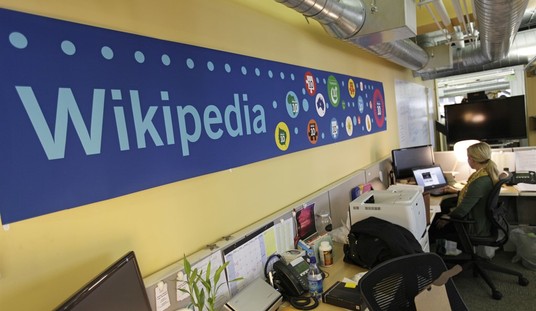An anniversary passed this week that went almost completely unremarked — and for good reason. March 17th marked the three-year anniversary of the UN Security Council resolution imposing a no-fly zone over Libya to stop the Moammar Qaddafi regime from attacking rebel-held Benghazi and Ajdabiya, and the three-year anniversary on the 19th of the NATO war on Libya. French, British, and American planes began bombarding the Qaddafi regime, an air war that would continue for months — while Barack Obama refused to request Congressional approval for it. Later, Obama would claim that Libya represented the smart model of Western intervention.
If so, why did these anniversaries pass unremarked? The Associated Press report on the status of Libya today gives a very good answer, although it is not written as such. Libya has become a failed state, where the government’s writ doesn’t run outside of its capital, and not even everywhere within that. Not only is it a dangerous place, but it is a danger to the surrounding nations in north Africa too:
Libya, where hundreds of militias hold sway and the central government is virtually powerless, is awash in millions of weapons with no control over their trafficking. The arms free-for-all fuels not only Libya’s instability but also stokes conflicts around the region as guns are smuggled through the country’s wide-open borders to militants fighting in insurgencies and wars stretching from Syria to West Africa.
The lack of control is at times stunning. Last month, militia fighters stole a planeload of weapons sent by Russia for Libya’s military when it stopped to refuel at Tripoli International Airport on route to a base in the south. The fighters surrounded the plane on the tarmac and looted the shipment of automatic weapons and ammunition, Hashim Bishr, an official with a Tripoli security body under the Interior Ministry, told The Associated Press.
In a further indignity, the fighters belonged to a militia officially assigned by the government to protect the airport, since regular forces are too weak to do it.
Only a few weeks earlier, another militia seized a weapons’ shipment that landed at Tripoli’s Mitiga Airport meant for the military’s 1st Battalion, Bishr said. Among the weapons were heavy anti-aircraft guns, which are a pervasive weapon among the militias and are usually mounted on the back of pickup trucks.
Do those stories sound familiar? To Americans, they should. The US relied on militias for its consular security in Benghazi rather than its own armed forces, and ended up having its consulate sacked and four Americans killed, including Ambassador Chris Stevens, the first of his rank murdered in the line of duty in 33 years.
Now Europe is expressing shock, shock that decapitating a regime in north Africa without any boots on the ground to control the situation can create a failed state:
The weapons chaos has alarmed Europe — just a short distance across the Mediterranean — and the United States. At a conference in Rome this month, Western and Arab diplomats, including U.S. Secretary of State John Kerry, pressed Libyan officials to reach some political consensus so the international community can help the government collect weapons and rebuild the military and police.
“Reach some political consensus”? Given the nature of the militias and extremists in Libya, that might possibly be an even worse outcome. The situation created by NATO is strikingly similar in outcome to Somalia, where warlords control territory and Mogadishu has little sway. Warlords aren’t going to give up their power unless it’s taken from them, and in both cases the chaos allows terrorist networks to grow, train, and metastasize — and that nearly caused the fall of Mali, which the French finally prevented by putting boots on the ground to control the situation.
The only way this situation will stabilize is for an overwhelming force to occupy Libya, disarm or destroy the militias, and re-establish order over several years while withstanding insurgencies and turmoil. If the West did not have the stomach to do that up front, when it would have dealt with much weaker militias, then it shouldn’t have forced the collapse of the existing regime in the first place. Instead, the US and NATO created a second Somalia on the Mediterranean, and now Europe will pay the price for it.
As anniversaries go, that’s not much to celebrate. But it’s a very good lesson to remember when Western leaders claim to have created a new push-button paradigm to project force, especially in that area of the world.








Join the conversation as a VIP Member